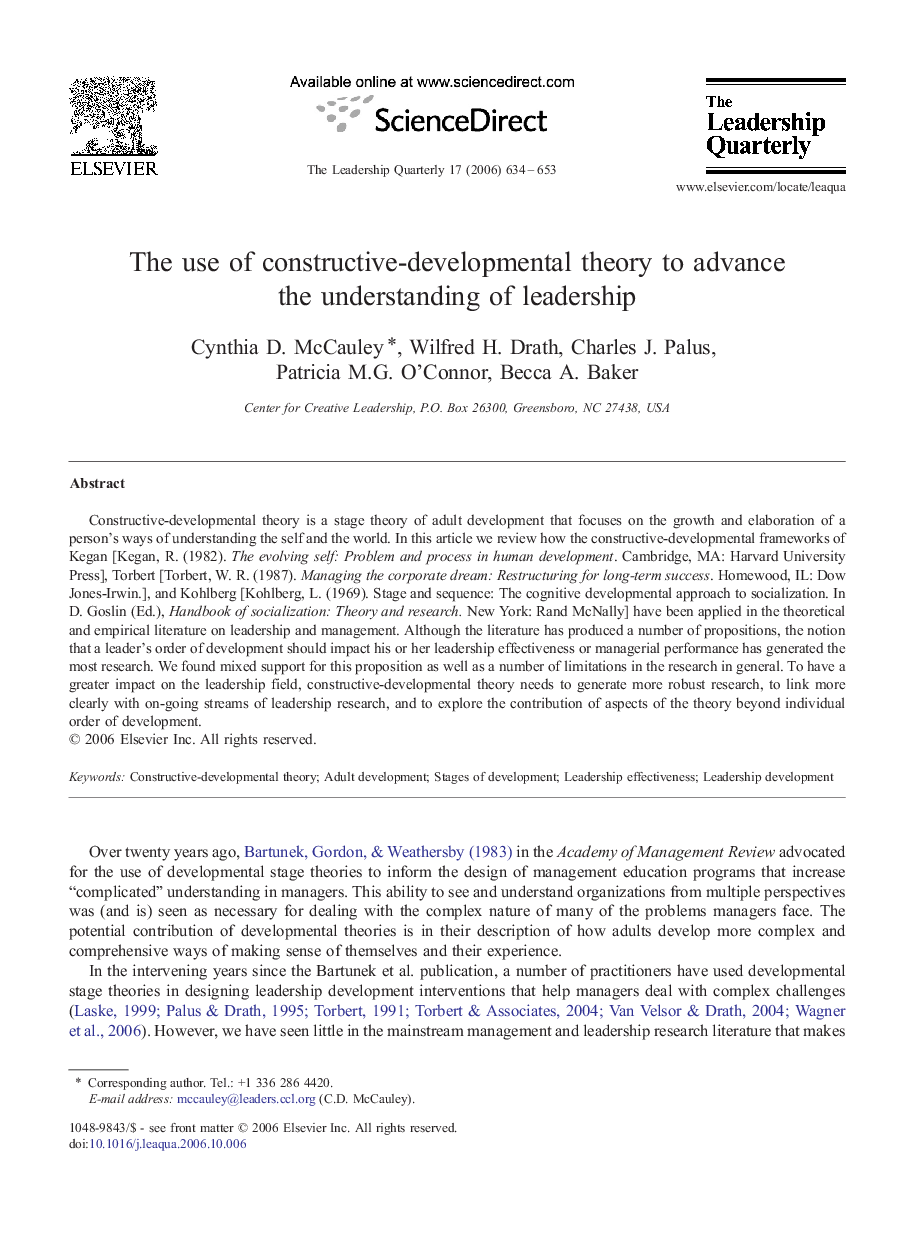| Article ID | Journal | Published Year | Pages | File Type |
|---|---|---|---|---|
| 888379 | The Leadership Quarterly | 2006 | 20 Pages |
Constructive-developmental theory is a stage theory of adult development that focuses on the growth and elaboration of a person's ways of understanding the self and the world. In this article we review how the constructive-developmental frameworks of Kegan [Kegan, R. (1982). The evolving self: Problem and process in human development. Cambridge, MA: Harvard University Press], Torbert [Torbert, W. R. (1987). Managing the corporate dream: Restructuring for long-term success. Homewood, IL: Dow Jones-Irwin.], and Kohlberg [Kohlberg, L. (1969). Stage and sequence: The cognitive developmental approach to socialization. In D. Goslin (Ed.), Handbook of socialization: Theory and research. New York: Rand McNally] have been applied in the theoretical and empirical literature on leadership and management. Although the literature has produced a number of propositions, the notion that a leader's order of development should impact his or her leadership effectiveness or managerial performance has generated the most research. We found mixed support for this proposition as well as a number of limitations in the research in general. To have a greater impact on the leadership field, constructive-developmental theory needs to generate more robust research, to link more clearly with on-going streams of leadership research, and to explore the contribution of aspects of the theory beyond individual order of development.
